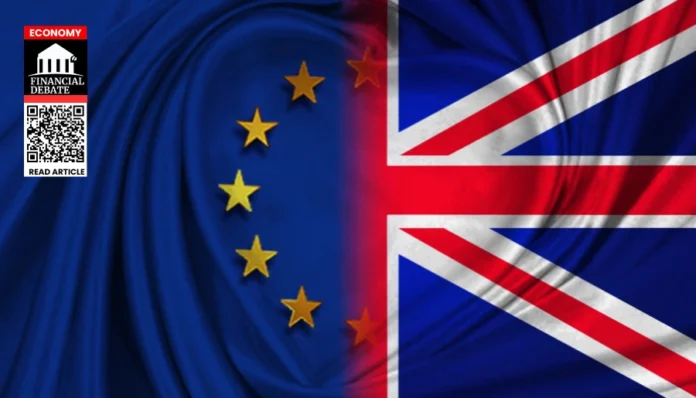- The UK and EU have reached a major agreement to improve trade and defense cooperation nearly a decade after Brexit.
- Key points include enhanced security partnerships, easier trade for British food exports, and extended fishing rights.
- The deal aims to boost the UK economy, support defense industries, and simplify travel, while addressing political challenges at home.
UK and EU Forge New Trade and Defense Partnership Post-Brexit
Nearly nine years after the United Kingdom voted to leave the European Union, the two sides have signed a groundbreaking agreement designed to reshape their relationship in trade, defense, and security. This new pact seeks to overcome many of the challenges that arose after Brexit, aiming to foster closer collaboration while respecting each party’s sovereignty.
Strengthening Defense and Security Collaboration
One of the most significant aspects of this agreement is the renewed cooperation in defense. The UK will now be able to participate in European defense procurement programs, giving British companies access to a €150 billion EU defense fund. This means firms like BAE Systems, Rolls-Royce, and Babcock can compete for contracts alongside their European counterparts.
This partnership is crucial as global security dynamics shift. With the United States showing signs of reducing its military focus on Europe, the UK and EU are motivated to bolster their own defense capabilities. This collaboration will enhance military readiness and innovation, ensuring both sides can respond effectively to emerging threats.
Simplifying Trade and Boosting the Economy
Trade between the UK and EU has faced many obstacles since Brexit, particularly for food and agricultural products. This new agreement eases some of these barriers by removing certain border inspections, which previously caused delays and increased costs for British exporters.
By streamlining customs procedures, the deal is expected to benefit UK producers significantly. The British government estimates that this could add approximately £9 billion to the UK economy each year by 2040. This boost is vital for farmers, food manufacturers, and exporters who have struggled with the complexities of post-Brexit trade.
Resolving the Fishing Rights Dispute
Fishing rights have been one of the most contentious issues in UK-EU negotiations. The new agreement extends the current fishing arrangements for another 12 years. This means EU fishing vessels will continue to have access to UK waters, but the UK will maintain control over its fishing quotas.
To balance this concession, the EU has agreed to relax trade restrictions on UK food exports. Additionally, the UK government has pledged £360 million to support coastal fishing communities, helping them adapt and thrive under the new terms.
Easier Travel and Mobility for UK Citizens
Travel between the UK and EU is set to become smoother under the new deal. British passport holders will gain access to e-gates at more European airports, speeding up entry and reducing queues. The agreement also simplifies rules around traveling with pets, making it easier for families to move across borders.
Discussions are ongoing about a youth mobility scheme that would allow young people aged 18 to 30 to travel and work between the UK and EU countries. Although full freedom of movement will not return, this initiative aims to offer more opportunities for cultural exchange and employment.
Joint Efforts on Climate and Energy
The UK and EU will link their carbon markets to prevent double taxation on goods with high carbon emissions crossing borders. This cooperation is particularly important for industries like steel and cement, which are vulnerable to tariffs related to carbon emissions.
By aligning their carbon pricing systems, the UK expects to save around £800 million annually in taxes. This arrangement supports both sides’ commitments to reducing greenhouse gas emissions while maintaining competitive industries.
Political Reactions and Future Outlook
The agreement marks a major step toward repairing and redefining UK-EU relations after years of uncertainty and tension. UK Prime Minister Keir Starmer hailed the deal as a way to “put Britain back on the world stage,” emphasizing the importance of global partnerships.
EU leaders also welcomed the pact, highlighting the need for unity and cooperation amid global challenges such as geopolitical instability and economic pressures.
However, the deal has not been without controversy. Some Brexit supporters in the UK criticize the concessions on fishing rights and mobility, viewing them as compromises that undermine the UK’s sovereignty. The government faces the challenge of balancing these domestic concerns with the benefits of closer ties to Europe.
This agreement comes on the heels of other recent UK trade deals with countries like India and the United States, reflecting a broader strategy to expand international relationships and strengthen the UK’s global position.
